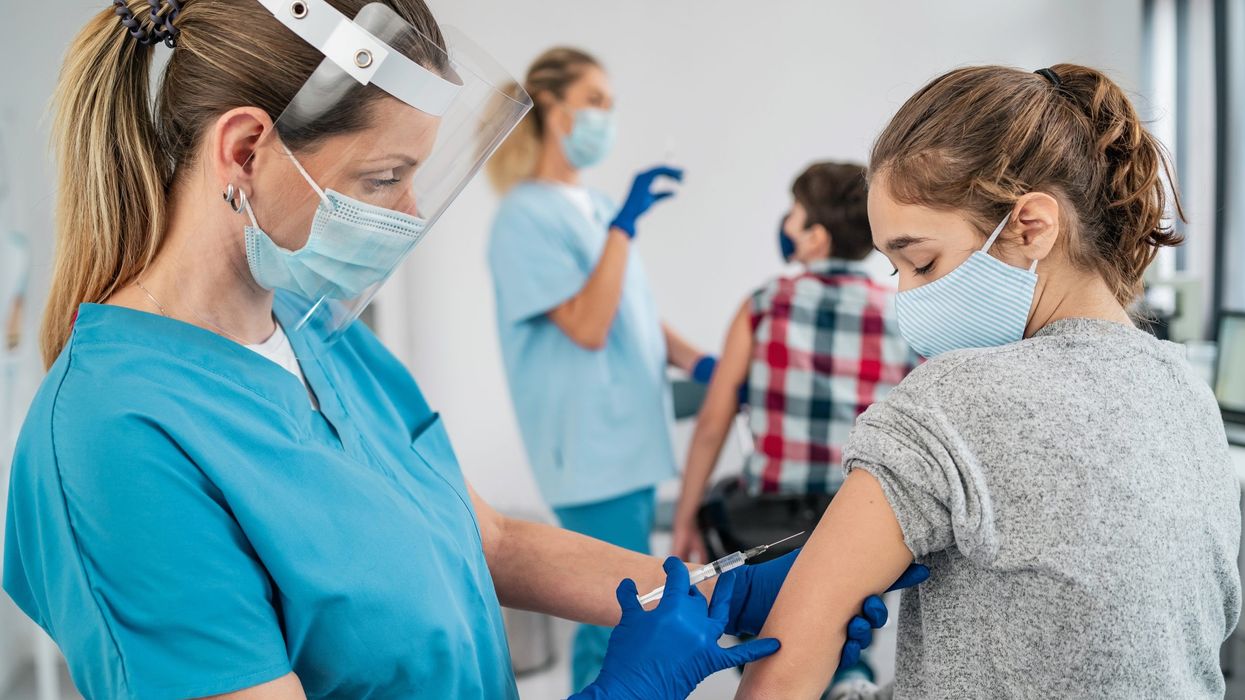England is among the first countries in the world to set this elimination ambition
The National Health Service England (NHSE) aims to eliminate cervical cancer by 2040 by making the lifesaving Human Papillomavirus (HPV) vaccination easily accessible to people and increasing cervical screening uptake.
In addition to the campaign, the NHS is expanding the outreach of cervical screening more than ever before.
Last year, the health service invited over five million people aged 25 to 64 for the screening, out of which 3.5 million were tested.
Moreover, self-sampling will be trialled to see if the service can introduced as part of national screening.
England is among the first countries in the world to set this elimination ambition, which could save thousands of lives every year in the country.
Amanda Pritchard, chief executive of Officer of NHS England, announced the health service’s new goal and how to achieve it at the NHS Providers’ annual conference today (15 November).
Pritchard said: “It is truly momentous to be able to set out such an important, life-saving ambition today – to eliminate cervical cancer would be an incredible achievement and through a combination of our HPV vaccination programme, and our highly effective cervical screening programme, it could become a reality in the next two decades.
“Vaccination and screening are the key tools which mean we are one step closer to achieving this and the NHS is already making it easier than ever before for people to protect themselves and their families – whether it’s through community outreach in areas of lower uptake or expanding the NHS app so that everyone has their vaccine history and booking options in the palm of their hand.
“As ever, the public can play their part by coming forward for their vaccines and screening appointments when invited – to achieve our goal of eliminating cervical cancer, we need as many people as possible to take up the offer, so please don’t delay – it could save your life,” she added.
The NHS would be strengthening efforts to eliminate the HPV virus, which causes up to 99% of cervical cancers.
Health and care professionals will be supported to identify those who most need the HPV vaccine, through targeted outreach and offering jabs in more convenient settings, the NHSE said.
Further, new measures will be introduced to give local health teams more flexibility to locate vaccine services in convenient local places such as libraries, community centres and local leisure or sports facilities.
Alongside routine vaccinations, NHS staff will offer blood pressure tests and other health checks and advice.
Steve Russell, chief delivery officer and national director for vaccinations and screening for NHS England, said: “Vaccination and screening are some of the most powerful tools we have for preventing disease and for keeping people from becoming unwell.”
Get HPV vaccine and cervical screening
The HPV vaccine prevents invasive strains of the virus as well as some mouth and throat cancers.
This vaccine is given to both girls and boys in secondary school to protect them against catching the HPV infection and developing into pre-cancerous and cancer cells.
To ensure that people are up to date with their vaccinations, the NHS App is being expanded with a new dedicated space that allows people to view their full vaccine record, and options to book appointments.
NHS screening helps prevent cervical cancer by using a highly effective test to check for high-risk HPV which may cause abnormal cells to develop in the cervix.
These abnormal cells can over time turn into cancer if left untreated, the health service confirmed.
For the elimination of cervical cancer, more women should come forward for their routine cervical screening appointments.
Currently, a third of women invited do not take up the offer, the NHS has revealed.
In England, around 2,700 women are diagnosed with cervical cancer each year, but the NHS screening programme helps save around 5,000 lives each year.
As per the World Health Organisation (WHO), cervical cancer is considered eliminated as a public health problem when the incidence rate is lower than four per 100,000 women.












